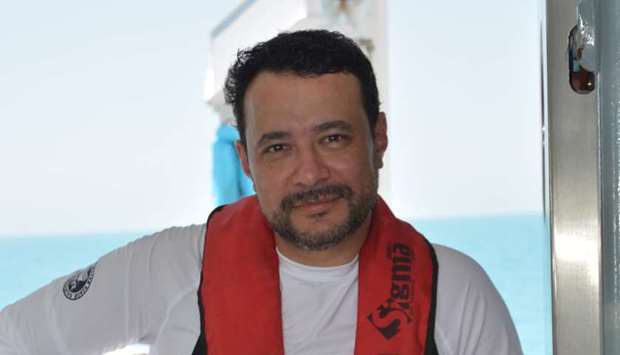Coral reefs are one of the most important natural assets in the Arabian region and particularly in Qatar. Increasing natural and anthropogenic stressors in the last couple of decades have resulted in overall negative trends of coral cover and diversity across the region. As a result, urgent but science based action needs to be taken to conserve the remaining coral reefs and restore the damaged ones.
Qatar University (QU) researchers are working on a series of interconnected projects aptly titled ‘RESTORE’ and ‘QataREEF’ aiming to bridge science to policy and apply advanced scientific knowledge and tools to achieving coral reef sustainability in Qatar and the region. Researchers at QU are using an innovative approach through artificial reefs to create ‘coral colonization’ to ensure the dispersion of coral.
Although coral restoration technologies have been evolving rapidly, there is a clear need to combine and adapt restoration protocols and guidelines to local species and environmental conditions. Accordingly, ‘RESTORE’ and ‘QataREEF’ will be focused on validating locally tested innovative restoration technologies to support the recovery process of damaged coral reefs in the Arabian Gulf.
Qatar is an adequate place to conduct such a project, mainly because the Arabian Gulf has an extreme environment. It is considered the hottest sea in the world, therefore new restoration technologies that will work here will be possibly replicated elsewhere, considering the warming of the world’s oceans. The Qatari seas are then considered a testing labouratory of how other seas will behave in the future.
The ‘RESTORE’ and ‘QataREEF’ research projects are aligned with the University’s Research Road Map and address numerous objectives including mitigating impact of global warming, protection of marine resources, enhancing learning and training of undergraduate and graduate students and junior researchers in Qatar as well as developing a scientific and technology provider leading role in the region for sustainability of marine resources.
These projects, developed in collaboration with TOTAL, the Ministry of Municipality Environment as well as SEABOOST, France and Nova Southeastern University, Florida, US, also strengthens QU collaboration with local industry, government bodies and international collaborators.
Dr. Radhouan Ben-Hamadou, Associate Professor of Marine Sciences in QU, leads the team of scientists based in Qatar. He says, ‘Our environment is our health, our food, our shelter and therefore we should actively work to ensure its sustainability. That does not mean that we don’t take advantage of natural resources but that these resources are exploited in a way that all human beings can have access to safe water, food, sanitation and wellbeing in the long run.’
While coral reefs represents only 0.1% of the total ocean’s area, they support more than 25% of the known marine biodiversity. Dr. Radhouan says, ‘We are the first generation to witness the impacts of global changes (like climate change) and we are definitely the last generation that can do something about it.’

